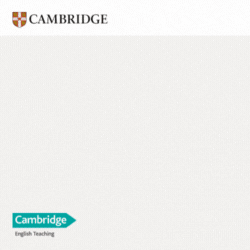Delivering the inaugural Centre for Asian-Australia Leadership lecture, Senator The Hon Penny Wong announced, “we want more students to spend more time in the region; we want more students to learn languages; and we want to ensure that short-term programs deliver real benefits for students”.
So, with the 2025 NCP mobility guidelines released, the signalling, intent and priorities are clear. The 2019 AUIDF national data shows 62% of the 58,058 students experienced Learning Abroad on a program less than 4 weeks. The government, via NCP, is actively looking to rebalance this through longer programs and a focus on language acquisition.
Senator Wong moved on to state, “our ability to optimise Australia’s position demands unprecedented coordination of statecraft, and most of all relies on our people.” To borrow from the Covid vernacular and highlight our people resource, The Koala notes, we are indeed ‘all in this together’ in adopting change.
Keri Rameriz from Studymove has done some insightful work across the sector garnering the student view, revealing 38% of students are interested in short term programming. With the education sector focussed on student experience and student voice, this work forms part of the complex Venn diagram where student demand, university capability and government priorities purportedly intersect. The pending equity challenges to student engagement, access and participation are not insignificant or unnoticed in the 2025 changes.
The NCP mobility stream is by necessity and design a more complex, yet exciting and uplifting lever of Learning Abroad. It has the largest funding block, the greatest volume of and diversity of students and requires significant and expert administrative input by universities and partners and investment from academic staff. So, while inevitably a short-term shock to university administration systems and academia, the changes recognise the capability and agility of Learning Abroad to transform and not simply transact. This community of practitioners and academics are not simply measured by economic contribution; but as a sector transforming people.
Brad Dorahy, Founder & CEO of CISaustralia says “the Learning Abroad sector and its people are passionate and resilient… institutions will reimagine their NCP and overall Learning Abroad strategy and …closely consider how they engage with Asia and the Pacific.” The considered response of the sector to engage and embrace the political direction will underpin its future success and NCP longevity.
NCP mobility brings disparate groups together, with the volume and diversity of student engagement showcasing what Learning Abroad achieves for the nation. Australia was after all the global leader in 2019, enabling almost 1 in 4 undergraduate students to learn abroad. Government, the university sector and partners will celebrate NCP mobility achievements in this 10th anniversary year. Growth into the region has been an outstanding achievement, not just through NCP but across the creative learning aboard community. The national uplift shows almost 50% of learning abroad is hosted in the Indo-Pacific.
Reflecting on the reframed mobility agenda, Senator Wong remarked, “these changes won’t solve our Asia literacy challenge on their own – they are just one piece of the puzzle, one step in the process, and one signal to the education sector.” This sentiment is shared by Simon Watson Senior Manager Global Mobility at UTS and IEAA National Convener of the Learning Abroad Network who notes “the NCP program had been carefully calibrated to ensure quality short-term experiences that will engage students and Australian academics with the region and its communities in all their diversity.” The contributions and work of many people have come together to ensure world class quality programming. The role of the academic community to support reshaping mobility experiences should not be under estimated.
Assistant Minster The Hon Tim Watts MP is now tasked with ensuring the NCP is “fit for purpose and builds the capability of our people”. The sector should expect to be called on to defend, inspire, challenge and debate future NCP iterations – deliver its wealth of experience and body of research to influence program design. The Assistant Ministers speech to the 2024 NCP Scholars, perhaps pre-emptive, noted… “Asia capability is more important than ever, it’s the foundation of all of the tools of influence that we are relying on the shape the dynamics that are changing our region.” This attention is afforded similarly to NCP mobility. Ministerial engagement signals a government championing the opportunity to enable thousands of young Australians to experience the region for longer and converse deeply with our Indo-Pacific neighbours.
NCP mobility is here to stay, albeit with a subtle mandate shift.
Key changes to the NCP 2025 mobility grant guidelines.
Change 1. Priority in selection will be afforded to projects:
- focussed on study of a language other than English
- with long-term (semester and longer) immersive experiences
- developed in partnership with Indo-Pacific hosts, particularly collaborative research, Pacific engagement and addressing Australian Government priority areas.
This will build sustained Australian ties with the Indo-Pacific and create an NCP intensive language learning stream. The agenda is clear, with no greater evidence than the flurry of regional Free Trade Agreements and economic relationship upgrades. Australia’s Southeast Asia Economic Strategy to 2040 and outcomes of the ASEAN-Australia Special Summit bring Learning Abroad to the diplomatic table, to build a future workforce with a higher degree of Asia literacy and experience.
By example, the $19.2 million funding commitment for the Southeast Asia Business Exchange, in response to the Southeast Asian Economic Strategy 2040 is enhanced by NCP sitting alongside it as a capacity building program. NCP is a building block to business, sport, the arts and science exchange and knowledge sharing in the region. The language is consistent, with the Assistant Minister stating “these exchanges will involve business missions to Southeast Asia, driving activities which raise Australian businesses’ awareness of the region’s commercial opportunities.”
The narrative is important. While a focus on student experience and capability is critical, a balance of similar focus to embed change in our institutions and industry partners will influence those who set the tone and agenda for (and benefit from) people to people exchanges. The guideline changes provide an important reflective marker, encouraging the sector to stop and reaffirm the role of NCP; the mobility grants are but one (of many) funding and mobility mechanisms for Learning Abroad and clearly tied to a national agenda.
NCP strategic intent is to build an alumni community; a community of practice and knowledge repository. This Australian asset enables industry to draw on expertise as it continues to uplift capacity and workforce capability in Indo-Pacific engagement. An NCP mobility experience is not simply an end, it’s a means to further ends for individuals and the nation. The Learning Abroad sector is key to this national machinery, cultivating the alumni resource currently at over 50,000 strong.
Change 2. Minimum duration for projects is four weeks (up from two weeks) and long-term immersive experiences of a full semester or longer will be prioritised.
The rationale is to build substantial Australian ties with the Indo-Pacific that support Government priorities, acknowledging that this takes time. Bodies of work locally and internationally support the sector in advocating for the value of short(er) term programs. Having done its homework via the IEAA Learning Abroad paper the sector can frame how short programs might also have as transformative role as a semester or year-long experience as part of an NCP suite of offerings. Further research by Professor Tran confirms well-designed short-term mobility programs at two weeks play a key role in ensuring access and inclusion, an important body of knowledge underpinning institutional commitments to equity for students exploring learning abroad. The work indicates there may be little to no significant difference in the outcomes achieved when comparing longer with short term programs.
The latest data from Brad Dorahy at CISaustralia and their Industry Survey reveals the most popular Learning Abroad program for Australian Universities in 2024 is study tours through mobility to Asia and the Pacific for 2 weeks (at 92% popularity this is more than 30% greater than any other program type). In conjunction with the work of Keri Ramirez, there is a robust body of evidence to support the position that short-term programs contribute to the national agenda of uplifting Asia capability. The eminent Rob Lawrence, always ahead of the curve, might refer to short-term programs as an ‘experience to place in the backpack or toolkit’, acknowledging them as one of the blocks contributing to a graduate’s entry into the workforce as Asia literate and Asia capable.
Change 3. The option to select various length activities within the one project application is removed
The rationale here is to enable clearer assessment of projects. Greater transparency, governance over and insight into projects will enable a fairer assessment against the other changes and criteria in the 2025 guidelines.
Change 4. There is a requirement to provide a letter from the proposed host organisation/s indicating approval in principle to host the project. Alternatively, an exchange agreement can be uploaded to indicate students of this project can secure places with the host.
This ensures host organisations are engaged in the application, an uplift to ensure projects contribute to regional development and sustained partnerships through co-design and delivery. The work of Deakin Professor Ly Tran, ARC Future Fellow, reports that “Indo-Pacific partners and communities see hosting Australian students as a tool to build their relationships with Australia”. Viewing regional hosts as equal partners in NCP delivery builds outcomes for both students and Australia’s regional industry engagement.
Simon Watson, IEAA Learning Abroad Network Convener notes that, “to succeed the program relies on the goodwill and generous inputs of academics from a wide range of teaching and learning disciplines, and that of our diverse host community partnerships across the Indo-Pacific.” Taking the time to recognise and reward contributions of the NCP host is a critical piece in the engagement puzzle, supporting the mandate to build sustained partnerships that progress to self-sufficient programs.
Onward and upward
The values-based commentary from Senator Wong is aligned with the Learning Abroad sector…, she states, “it relies on us all recognising each other’s value. All of us knowing the whole is greater than the sum of our parts. In this way, we build the country we need today, and the country we want for our children.” So, the sector has political supporters, advocates within government administration, industry champions and community torch-bearers. The fan base is there in the face of change.
While 2025 presents program and resource challenges, 2026 will bring consolidation and frank and fearless reflection. The 2022 AUDIF data confirms much of the COVID recovery track was built around short-term programs, so some decisive collaboration is required to turn planes around quickly in enabling longer programs. The future slate for NCP mobility is there for the writing and the Learning Abroad community are primary authors.
All that being said, the channels are open. An engaging forum with DFAT, the NCP Secretariat, ILO’s and mobility professionals on the Gold Coast preceding the IEAA Learning Abroad Forum foreshadowed the appetite to listen and learn. Similarly at the Forum proper, conversations and feedback to DFAT and NCP Administrative Services Contractor Palladium have been honest and robust. So, with 2025 guidelines locked in, there will be much to learn from the round, the monitoring and evaluation process and future design consultation. The IEAA Learning Abroad Network Leadership rightly state, the “evidence is in the outcome. We’ve seen a quantum shift in learning abroad programming in Australia toward our region.” There is every reason to expect the sector has capability for another quantum shift, to support government engagement in the region. Concurrently, this reinforces there are multiple pathways to growing Indo-Pacific mobility, inclusive and independent of NCP, that can be explored.
Strategic alignment is a messy and glorious thing. Practically difficult to pursue and, at times, seemingly out of reach, the joy and wins often come in shared construction. Reflect on how far Learning Abroad has come and be excited for what it has to offer.
Learning Abroad through NCP Mobility grants is well and truly on the map.
Key changes and advice to applicants are listed here
Applications via a GrantConnect account here close 11.30pm, 1 Oct 2024 (ACT local time)
Note: With sincere acknowledgment of the Leaning Abroad community for your considered thoughts, insights and contributions. Congratulations and thank you to Simon Watson, Jeannette Geesmann and Ashley Tanks for your continuing leadership voice through IEAA.

















